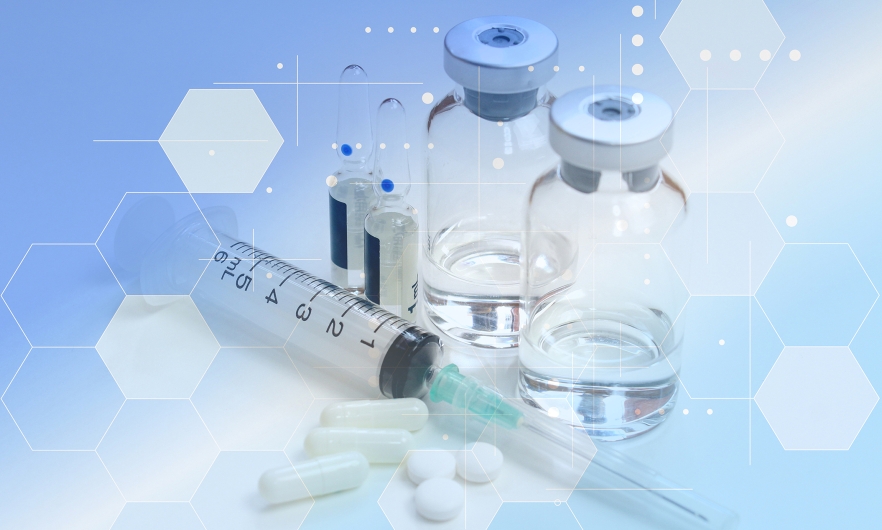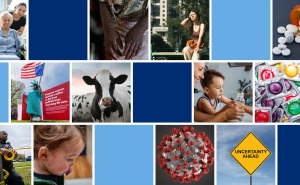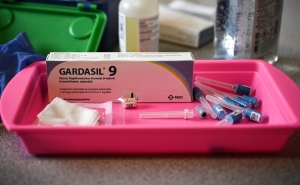
Interview by Melissa Hartman
Early in the pandemic, treatment options for COVID-19 patients were scarce. As knowledge evolved on how best to treat hospitalized patients, the search intensified for ways to prevent hospitalization in the first place. Before vaccines became the best option, the antiviral remdesivir and monoclonal antibodies showed promise for turning the course of disease and saving lives.
Now, two oral antiviral drugs have emerged as promising treatments for those in the earliest stages of COVID. In this Q&A, epidemiologist Chris Beyrer, MD, and virologist Andy Pekosz, PhD, share their reactions to the studies, why they’re optimistic about these drugs, and why we need more antiviral medications in the pipeline.
Updated November 9, 2021
Within the span of a month, Merck and Pfizer have each announced that they’ll seek emergency use authorization for oral antivirals for Covid. How do these drugs fit into the Covid treatment landscape?
AP: We now have a continuum of treatments for different stages of the disease. Although they target different stages of the virus’s life cycle, these two drugs are both for the earliest stage of infection—within three to five days of symptom onset. We have monoclonal antibody treatments, delivered intravenously or by injection, and the antiviral remdesivir, also delivered intravenously. Those are for people in the middle stages of mid-infection. We have steroids for later in the disease process—if you’re really ill, or if you’re in the hospital. These are for severe disease.
So we’ve now got several things in place that together could make a really big impact on COVID-19 disease. And let’s not forget about vaccines.
Why do THESE DRUGS have to be taken so early?
AP: The important thing is to target the virus when it’s replicating, and in many cases, the virus is replicating probably a day or two before you even feel symptoms. To turn the course of the disease, you need to put those antivirals into your system as soon as possible, because the sooner you drop the virus’s replication, the less likely it is that you’ll progress to that second stage of disease, which is really driven by your immune system. When it’s progressed to that stage, there’s very little virus in your system, and the antivirals really won’t do anything. You’ve got to target the stage when the virus is responsible for causing symptoms, like loss of smell and coughing. As you progress further, your immune system is causing symptoms that the antivirals just won’t help with.
What was your response to the news of these treatments?
CB: I’m very optimistic about them. Of course they need to be readily available to people, along with accurate rapid testing, because big benefits are early on in the course of disease. But that said, if you can reduce hospitalizations and deaths by 89%, as Pfizer’s trial showed, or 50%, as Merck’s did, that’s a huge advance. And remember that in a lot of the world, what people think of as hospitalization is nowhere near the tertiary care standard that we have in industrialized countries. So keeping people out of hospitals in Bangladesh and the Democratic Republic of Congo—that really matters.
What about using these drugs as prophylactics—to prevent infection if you have been exposed?
AP: Pfizer is testing that now. That's exciting because, for instance, if one of your family members gets sick, perhaps you can take this drug before you actually show symptoms and reduce your likelihood of getting infected. That would really be a great thing because then you can actually not just treat the infection, but also prevent the infection.
Tamiflu has been used this way in certain scenarios. For instance, if you’re in a hospital setting, and there’s a big flu outbreak, the health care staff can take Tamiflu as a prophylaxis, because there’s a known exposure and a lot of cases going on.
Do you think THESE DRUGS will be useful for breakthrough infections?
AP: Yes, absolutely a breakthrough infection would be one scenario, and Pfizer is doing trials on this as well. One of the things we do with Tamiflu is remind high-risk individuals that this drug is available to them. If someone in a high-risk group gets infected, they should know immediately that this is something that they have to take to help lessen the odds of the disease progressing to a serious form, irrespective of whether they were vaccinated. The same would apply here.
Do we need to worry about DRUG resistance to THESE ANTIVIRALS, like we do for antibiotics?
CB: Antiviral resistance is always a problem. This is why we ended up eventually with three drugs for HIV. Monotherapy looked like it was going to be effective, but in fact the virus just mutated around it. We did two-drug therapy, and that also didn’t make any difference in survival. And then finally we came to triple therapy, which blocks the virus at enough points in its lifecycle to stop people from being viremic. And that really is the goal.
But that said, we’re still in a pandemic emergency, and we’re still trying to save lives, and we have not done well with immunization in much of the world, including pockets of this country.
AP: What we really want is a cocktail of two or three drugs, each of which targets a different stage of the virus life cycle. Two or three drugs taken together make it almost impossible for the virus to mutate to be able to get around those treatments, as we’ve seen with antiviral therapies for HIV. So having another drug is really good from that long-term aspect.
Pfizer’s drug is designed to be taken with ritonavir, an HIV drug. So, does that already address the concern about using a single antiviral?
AP: It's important to note that ritonavir actually acts to lengthen the amount of time that the other drug stays in your system. Ritonavir doesn't act on the coronavirus directly—instead, it keeps your metabolism from degrading the actual active drug too fast.
Could having more treatments actually stall vaccination rates?
CB: Many people are just dug in against the vaccines. If their lives can be saved by using the monoclonal antibodies or the new antiviral, that is great. We want everybody to benefit from science.
Even in some very vaccine hesitant communities, including in the U.S., people have been willing to get the monoclonal antibodies. The difference is that one is truly primary prevention and the other is secondary prevention. Primary prevention is always better.
Melissa Hartman is the managing editor of Hopkins Bloomberg Public Health magazine and associate director of editorial at the Johns Hopkins Bloomberg School of Public Health.





